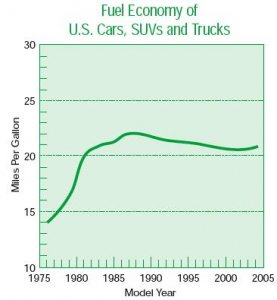- Joined
- Sep 19, 2004
- Messages
- 2,547

and i respect you, too, Mr. M! btw, i''m not a hillary fan.......Date: 4/28/2006 10:13:26 PM
Author: Mr Majestyk
''and you don''t have to spend $$$ to buy influence if you have ''oil people'' in positions of power within the administration.......''
And this proves what? It''s just feculent liberal blather. Precisely how does having ''oil people'' (whatever that means'' in the admin affect the price of oil, or anything else? The US Gov''t does not set the price. The market sets the price. You could have Hillary Clintoon as Pres and the price wouldn''t change.
Which country had the more effective response to rising gasoline prices?
The number of formal inquiries in the past five years runs into the dozens, including one ordered last year by Wisconsin Gov. Jim Doyle. The result is a lesson in wastefulness. None of the investigations has found any systematic illegal conduct.
Moreover, while the politicians have been engaged in demagoguery, they have not been engaged in developing an energy policy to reduce U.S. dependence on high-priced foreign oil.
It''s disappointing that President Bush fed this feckless grandstanding with his statement this week.
In contrast, Brazil is now reaping the benefits of its bold investment in energy independence. Brazil accepted a call to action in the 1970s, after soaring oil prices ravaged its economy.
Regrettably, the Brazilian public was cut out of early decision-making by the country''s military dictatorship. But the dictatorship''s policy of developing domestically produced ethanol as an alternative to gasoline has proved a big success. So was the development of domestic oil fields.
Today, Brazil''s democratic government is continuing the policies. More than a third of Brazil''s motor fuel is ethanol, made from sugar cane. And though Brazil still imports some light crude oil for refined products, its domestic production of heavy crude now exceeds internal demand.
As a result, Brazilian motorists are saving money by buying ethanol, which is less than two-thirds the cost of gasoline. And the nation will profit from oil exports, cushioning the economy against the rising cost of oil- related products.
George Bush (jr) has started to focus on Nuclear Power as a long term option - which in my opinion is an important piece of the long term puzzle. But it will not be the only piece (I suspect that in the end nuclear produced hydrogen may be able to replace about 1/2 of the current oil usage in the US - but it will take about 60 years to get there).
In my opinion: The single most effective long term statagy would be a mechanism that highly encouraged small very fuel efficient vehicles for most americans. In my case I own two vehicles: a small car that gets 30-40 MPG depending on driving conditions (city/highway) and weather- and I''ve had that car and cars like it for 20 years. I also own a full size van that gets 10 - 14 MPG depending on driving conditions and weather. The van is driven very rarely (typically only once a month just to keep it up) except for those situations where I really need the cargo or people capacity of the van (about every other month in the last year).
Now most people at work also have 2, or more vehicles. Few of them have a combination of a small commuting vehicle and a larger vehicle. Instead they have a modern full sized "beefed up" pickup truck and a mini or full sized van - or larger . Most drive those trucks to work.
People ask me all the time about my gas milage in my car when they are considering a vehicle; and then show up the next week with a new pickup truck that gets 12 MPG as their commute vehicle; or a new custome full sized van.
Probably 1/3 of the gasoline consumption in the US could be eliminated just by using small vehicles for commuting.
However, EGO - and "Keeping up with the Jones'' " is far more important.
35 MPG - $50 per year
30 MPG - $250 per year
25 MPG $750 per year.
20 MPG $2,000 per year.
15 MPG $5,000 per year.
10 MPG $10,000 per year.
Apply that to all new vehicle model years - starting with the 2007 models and I''ll bet you see a major reduction in fuel usage in the next 5 years and a major shift in type and efficiency of vehicles as well. Incrementally over a period of years retrofit it back onto previous vehicles over time as well to drive the selection of used vehicles: say after 1 year one (in 200 5% of those rates would be applied to 2006 models, year 2 (2009) 5% to 2005 models - and 10% to 2006 models; year 3 (2010) 5% to 2004 model vehicles, 10% to 2005, and 15% to 2006
Perry
It''s interesting and very telling that you find this to be "total nonsense". Ummm....the price of gas at the pump goes up.....the record profits of the oil companines continue to go up. Which isn''t true?Date: 4/28/2006 10:10:11 PM
Author: Mr Majestyk
'' I think their rising profit is obscene given the cost of gas in this country.''
This is total nonsense. What profit would you prefer that they make? What % or dollar amount of profit would you deem appropriate and why.
The oil companies do not set the prices, regardless of who is in the White House.
Mr Majestyk
